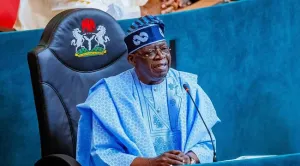President Tinubu’s Visit to Benue: A Response to Crisis Amid Political Tensions

Makurdi, Benue State – President Bola Ahmed Tinubu is set to visit Benue State today, Wednesday, June 18, 2025, in a move aimed at addressing the recent wave of crises that have rocked the region. The Benue State Government, led by Governor Hyacinth Alia, has declared the day a public holiday to mark the president’s visit, underscoring its significance to the state. The visit comes in the wake of violent incidents, including the Yelewata attack and other reported killings, which have heightened insecurity and displaced communities in the state. However, the president’s trip has not been without controversy, with political undertones and logistical concerns stirring debate among residents and observers.
Context of the Visit
President Tinubu’s visit is a direct response to the escalating security challenges in Benue, a state long plagued by conflicts between farmers and herders, as well as other forms of violence. The recent attack in Yelewata, a community in Guma Local Government Area, and other reported killings have drawn national attention to the plight of Benue residents. Sources indicate that the president intends to assess the situation on the ground, engage with local stakeholders, and demonstrate solidarity with the affected communities.
The decision to prioritize Benue over a previously scheduled trip to Kaduna State highlights the urgency of the situation. According to reports, Tinubu rescheduled his Kaduna engagement to ensure he could address the crisis in Benue promptly. This move has been interpreted by some as a signal of the administration’s commitment to tackling insecurity in the North-Central region, though others view it with skepticism, citing longstanding challenges in resolving the root causes of the conflicts.
Preparations and Public Holiday
In preparation for the president’s arrival, the Benue State Government has mobilized resources to ensure a smooth visit. Governor Alia’s administration declared June 18 a public holiday, allowing residents to participate in welcoming the president and facilitating logistical arrangements. Markets, schools, and government offices are expected to remain closed, with security agencies deployed to maintain order and ensure the safety of the president and his entourage.
However, the preparations have not been without criticism. Reports circulating on social media platforms, including posts on X, suggest that some local leaders and political actors have been accused of mobilizing crowds to create an impression of overwhelming support for the president. Critics argue that such actions divert attention from the core issues of insecurity and economic hardship facing the state. One X post described the mobilization as “political theatrics,” while another user questioned the propriety of a public holiday given the state’s economic challenges.
Political Controversy
The visit has also sparked political tensions within Benue. Some opposition figures and civil society groups have expressed concerns over the timing and motives behind the president’s trip. They argue that the federal government’s response to insecurity in Benue has been inadequate, pointing to the recurring nature of attacks and the lack of sustainable solutions. Others have criticized the state government’s handling of the visit, alleging that resources spent on logistics could have been better directed toward supporting displaced persons and victims of violence.
On the other hand, supporters of Governor Alia and President Tinubu view the visit as a positive step toward addressing Benue’s challenges. They commend the president for prioritizing the state and argue that his presence will boost morale and draw federal attention to the region’s needs. A statement from the Benue State Government emphasized that the visit is a demonstration of Tinubu’s commitment to the welfare of Benue people, urging residents to cooperate and maintain peace during the event.
Expectations and Challenges
Residents of Benue have mixed expectations for the president’s visit. Many hope that Tinubu will announce concrete measures to address insecurity, such as increased military presence, support for displaced persons, and initiatives to resolve the underlying causes of farmer-herder conflicts. Others are cautiously optimistic, citing previous high-profile visits that yielded little in terms of tangible outcomes.
The challenges facing Benue are complex, involving not only security but also economic and social dimensions. The state is a major agricultural hub, and persistent violence has disrupted farming activities, contributing to food insecurity and economic hardship. Additionally, the influx of displaced persons into camps has strained local resources, with humanitarian agencies struggling to meet the needs of affected communities.
Broader Implications
President Tinubu’s visit to Benue is being closely watched as a test of his administration’s ability to address Nigeria’s multifaceted security challenges. With similar crises affecting other parts of the country, including the North-West and South-East, the federal government’s response in Benue could set a precedent for its approach elsewhere. Analysts suggest that the visit provides an opportunity for Tinubu to outline a comprehensive strategy for tackling insecurity, rebuilding trust with affected communities, and fostering collaboration between federal and state authorities.
As the president touches down in Makurdi today, all eyes will be on his engagements with local leaders, security agencies, and community representatives. Whether the visit will translate into meaningful action remains to be seen, but for the people of Benue, it represents a glimmer of hope in the face of adversity.
Note: This article is based on available information as of June 18, 2025, including reports from web sources and posts on X. For real-time updates, readers are encouraged to follow credible news outlets.





